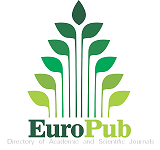Balancing Control and Collaboration: Project Manager Accountability in Multi-Layered Governance Systems
DOI:
https://doi.org/10.58932/MULA0018Keywords:
Project-Based Organizations, accountability frameworks, agency theory, hierarchical accountability, social accountability, governance structuresAbstract
This study examines accountability frameworks within Project-Based Organizations (PBOs), addressing how multi-layered governance structures influence the alignment of project activities with organizational goals. Traditional agency theory, which views accountability as a principal-agent relationship, encounters limitations within PBOs due to the complex, multi-stakeholder environment in which project managers operate. To understand how these organizations, navigate accountability challenges, this research utilizes a qualitative case study approach, drawing on interviews with project managers, PMO staff, and executive sponsors. Findings reveal that multi-dimensional accountability encompassing hierarchical and social accountability models enhances governance effectiveness in PBOs by balancing formal oversight with peer-driven collaboration. Governance mechanisms such as Project Management Offices (PMOs), project sponsorship, and portfolio management are shown to reinforce both process and outcome accountability, adapting traditional agency principles to the dynamic demands of PBOs. This study contributes to the literature on project governance by presenting a hybrid accountability model that supports both top-down control and team-based flexibility, offering PBOs a robust framework for sustainable project success. Future research should further explore how these governance models adapt to emerging technologies and evolving stakeholder expectations in complex project landscapes.
References
Abrahams, T. O., Farayola, O. A., Kaggwa, S., Uwaoma, P. U., Hassan, A. O., & Dawodu, S. O. (2024). Cybersecurity awareness and education programs: a review of employee engagement and accountability. Computer Science & IT Research Journal, 5(1), 100-119.
Adolfsson, C. H., & Alvunger, D. (2020). Power dynamics and policy actions in the changing landscape of local school governance. Nordic Journal of Studies in …. doi:10.1080/20020317.2020.1745621
Ahmad, S., Ahmad, A., Shair, W., & Bhatti, M. A. A. (2022). Unlocking Pakistan's Youth Potential: A Comprehensive Analysis of Youth Development Indices and Strategic Alignment with the UN Sustainable Development Goals. Journal of Professional Research in Social Sciences, 9(2), 80-95.
Alrubaiq, A., & Alharbi, T. (2021). Developing a cybersecurity framework for e-government project in the Kingdom of Saudi Arabia: mdpi.com.
Arinze, C. A., Ajala, O. A., Okoye, C. C., Ofodile, O. C., & Daraojimba, A. I. (2022). Evaluating the integration of advanced IT solutions for emission reduction in the oil and gas sector. Engineering Science & Technology Journal, 5(3), 639-652.
Armstrong, M., & Taylor, S. (2023). Armstrong's handbook of human resource management practice: A guide to the theory and practice of people management: books.google.com.
Babikian, J. (2023). Navigating legal frontiers: exploring emerging issues in cyber law: researchgate.net.
Barbosa, M. T., & Carvalho, M. M. (2022). Toward a Multilevel Framework of Dynamic Capabilities Through the Lens of Project Management, Project Portfolio Management, and Project-Based Organizations. Project Management Journal, 55(3), 247-263.
Barbosa, M. T. J., & Carvalho, M. M. (2022). Toward a Multilevel Framework of Dynamic Capabilities Through the Lens of Project Management, Project Portfolio Management, and Project-Based Organizations. Project Management Journal. doi:10.1177/87569728231207028
Baron, J., & Armstrong, K. (2021). The Algorithm in the C-Suite: Applying Lessons Learned and Information Governance Best Practices to Achieve Greater Post-GDPR Algorithmic Accountability. The GDPR Challenge. doi:10.1201/9780429325939-2
Benveniste, J., & Mizrahi, S. (2023). Accountability, governance, and institutional change in intergovernmental relations: A theoretical framework. Politics &Policy. doi:10.1111/polp.12520
Boopathi, S. (2022). Sustainable Development Using IoT and AI Techniques for Water Utilization in Agriculture. In Sustainable Development in AI, Blockchain, and E-Governance Applications (pp. 204-228): IGI Global.
Bozkurt, Y., Rossmann, A., & Pervez, Z. (2022). A literature review of data governance and its applicability to smart cities: aisel.aisnet.org.
Brunet, M., & Cohendet, P. (2022). Transforming construction: heterarchical megaproject ecologies and the management of innovation. Construction management and economics. doi:10.1080/01446193.2021.1983851
Bühler, M. M., Nübel, K., Jelinek, T., Riechert, D., & Bauer, T. (2023). Data cooperatives as a catalyst for collaboration, data sharing and the digital transformation of the construction sector. Buildings. Retrieved from https://www.mdpi.com/2075-5309/13/2/442
Cao, X. (2020). Governance and cooperation in environmental project delivery: a case study of Tai'an: orca.cardiff.ac.uk.
Chen, B., & Liu, Y. (2022). Promotion and Advancement of Data Security Governance in China: mdpi.com.
Clayton, J., & Sibbald, S. (2020). Privacy and Ethics Are Fundamental to Tech Development: A Privacy Regulator's Perspective. The International Review of Information …. Retrieved from http://informationethics.ca/index.php/irie/article/view/379
Conteh, C., & Harding, B. (2023). Boundary-spanning in public value co-creation through the lens of multilevel governance. Public Management Review. doi:10.1080/14719037.2021.1942529
Corrêa, N., Galvão, C., Santos, J., Pino, C. D., Pinto, E., & ... (2023). Worldwide AI ethics: A review of 200 guidelines and recommendations for AI governance: cell.com.
Couture, F., Jarzabkowski, P., & Lê, J. K. (2023). Triggers, traps, and disconnect: How governance obstacles hinder progress on grand challenges. Academy of Management …. doi:10.5465/amj.2020.1716
Crosson, D. M., Bargués, P., & Paikin, Z. (2021). Multi-Layered Actions? Sustaining Partnerships in the EU Integrated Approach to Conflicts and Crises. JOINT Research …. Retrieved from https://www.jointproject.eu/wp-content/uploads/2022/01/joint_rp_7.pdf
Daly, A., Hagendorff, T., Li, H., Mann, M., & ... (2020). AI, governance and ethics: global perspectives. University of Hong …. Retrieved from https://papers.ssrn.com/sol3/papers.cfm?abstract_id=3684406
Diem, G. (2021). Agile and traditional project management: comparing agile, traditional and hybrid project management practices: ros.hw.ac.uk.
Dimech, G., Gonzi, R. D., & Wild, A. (2022). Multi-dimensional Modelling for Mapping Project Trade-offs in Construction: A Maltese Perspective. Managing Risk and Decision Making in …. doi:10.1108/S1569-37592022000108A032
Dissanayake, T., & Dellaportas, S. (2021). The diffusion of accounting reform in Sri Lanka: an analysis of two layers of diffusion among three levels of government. … , Auditing &Accountability …. doi:10.1108/AAAJ-08-2019-4147
Efunniyi, C. P., Abhulimen, A. O., Obiki-Osafiele, A. N., Osundare, O. S., Agu, E. E., & Adeniran, I. A. (2022). Strengthening corporate governance and financial compliance: Enhancing accountability and transparency. Finance & Accounting Research Journal, 6(8), 1597-1616.
Ereddia, L. (2023). Firm Transparency of Risk Oversight: An Examination of Cybersecurity Governance Disclosures: trace.tennessee.edu.
Esser, D. E., & Janus, H. (2023). How are accountability and organisational learning related? A study of German bilateral development cooperation. Evaluation. doi:10.1177/13563890231204661
Ezeigweneme, C. A., Umoh, A. A., Ilojianya, V. I., & Adegbite, A. O. (2022). Review of telecommunication regulation and policy: comparative analysis USA and Africa. Computer Science & IT Research Journal, 5(1), 81-99.
Imam, M. A., Ahmad, S., Bhatti, M. A. A., & Afzal, M. (2023). Contextualizing Research Approaches: The Role of Western and Islamic Philosophies in Shaping Methodology and Knowledge Creation. Al-Irfan, 8(16), 69-90.
Gevaert, C., Carman, M., Rosman, B., Georgiadou, Y., & ... (2021). Fairness and accountability of AI in disaster risk management: Opportunities and challenges: cell.com.
Ghafran, C., & Yasmin, S. (2020). Ethical governance: Insight from the Islamic perspective and an empirical enquiry: Springer.
Gomo, N., Steyn, H., & Waveren, C. C. V. (2021). The role of the project management office in knowledge transfer in a matrix-structured organisation: a case study. South African Journal of …. doi:10.7166/32-4-2517
Grootjans, S. J. M., Stijnen, M. M. N., Kroese, M., & Ruwaard, D. (2022). Collaborative governance at the start of an integrated community approach: a case study. BMC Public Health. doi:10.1186/s12889-022-13354-y
Grünewald, E. (2022). Cloud Native Privacy Engineering for Transparency and Accountability: depositonce.tu-berlin.de.
Hagendorff, T. (2020). The ethics of AI ethics: An evaluation of guidelines: Springer.
Halbig, C. (2020). Virtue vs. virtue ethics: Springer.
Hert, P. D., & Lazcoz, G. (2022). When GDPR-principles blind each other: accountability, not transparency, at the heart of algorithmic governance. Eur. Data Prot. L. Rev. Retrieved from https://heinonline.org/hol-cgi-bin/get_pdf.cgi?handle=hein.journals/edpl8§ion=9
Jejeniwa, T. O., Mhlongo, N. Z., & Jejeniwa, T. O. (2022). Conceptualizing e-government initiatives: lessons learned from Africa-US collaborations in digital governance. International Journal of Applied Research in Social Sciences, 6(4), 759-769.
Johnsøn, J., Marcinkowski, L., & Sześciło, D. (2021). Organisation of public administration: Agency governance, autonomy and accountability: oecd-ilibrary.org.
Karlsson-Vinkhuyzen, S., Dahl, A. L., & Persson, Å. (2018). The emerging accountability regimes for the Sustainable Development Goals and policy integration: Friend or foe? Environment and Planning C: Politics and Space, 36(8), 1371-1390.
Kedah, Z. (2023). Use of e-commerce in the world of business. Startupreneur Business Digital (SABDA Journal), 2(1), 51-60.
Khreisat, M. N., Khilani, D., Rusho, M. A., Karkkulainen, E. A., Tabuena, A. C., & Uberas, A. D. (2022). Ethical Implications Of AI Integration In Educational Decision Making: Systematic Review. Educational Administration: Theory and Practice, 30(5), 8521-8527.
Kiseleva, A. (2020). AI as a medical device: is it enough to ensure performance transparency and accountability? EPLR. Retrieved from https://heinonline.org/hol-cgi-bin/get_pdf.cgi?handle=hein.journals/eplr4§ion=6
Kossow, N., Windwehr, S., & Jenkins, M. (2022). Algorithmic transparency and accountability: JSTOR.
Kroll, J. (2021). Outlining traceability: A principle for operationalizing accountability in computing systems. Proceedings of the 2021 ACM Conference on Fairness …. doi:10.1145/3442188.3445937
Kwilinski, A., Lyulyov, O., & Pimonenko, T. (2023). Inclusive economic growth: Relationship between energy and governance efficiency. Energies, 16(6), 2511.
Li, Y., & Han, Y. (2022). Self-Organization, Dynamic Meta-governance, and Value Creation in Megaprojects. … , Programme and Portfolio Management: Projects as an …. doi:10.1007/978-3-030-86248-0_14
Martinsuo, M. (2023). Portfolio and program governance. Research Handbook on the Governance of Projects. Retrieved from https://www.elgaronline.com/edcollchap/book/9781802208078/book-part-9781802208078-33.xml
Maxwell, D. (2020). Network Governance in the Public Health Sector: researchspace.auckland.ac.nz.
Millner, R., & Meyer, M. (2022). Collaborative governance in Social Impact Bonds: aligning interests within divergent accountabilities? Public Management Review. doi:10.1080/14719037.2021.2000253
Oladeinde, M., Hassan, A. O., Farayola, O. A., Akindote, O. J., & Adegbite, A. O. (2023). Review of it innovations, data analytics, and governance in nigerian enterprises. Computer Science & IT Research Journal, 4(3), 300-326.
Parker, D. W., Dressel, U., Chevers, D., & Zeppetella, L. (2018). Agency theory perspective on public-private-partnerships: International development project. International Journal of Productivity and Performance Management, 67(2), 239-259.
Ramirez-Madrid, J. P., Escobar-Sierra, M., Lans-Vargas, I., & Montes Hincapie, J. M. (2022). Factors influencing citizens’ adoption of e-government: an empirical validation in a Developing Latin American Country. Public Management Review, 26(1), 185-218.
Schillemans, T., & Bovens, M. (2011). The challenge of multiple accountability. Accountable governance: Problems and promises, 3-21.
Schneider, G. (2022). Framing Accountability in Business-to-Government Data Sharing: The Gap Filling Role of Businesses' Corporate Digital Responsibility. European Business Law Review. Retrieved from https://kluwerlawonline.com/journalarticle/European+Business+Law+Review/33.6/EULR2022040
Senshaw, D., & Twinomurinzi, H. (2022). Critical path-dependencies affecting digital government innovation in low-income countries: a case study from Woredas in Ethiopia. Electronic Government, an International Journal, 20(1), 1-19.
Söderlund, J. (2023). Project-based organizations: an overview of an emerging field of research. Research Handbook on Complex Project Organizing, 172-182.
Sørensen, E., & Torfing, J. (2021). Radical and disruptive answers to downstream problems in collaborative governance? Public Management Review. doi:10.1080/14719037.2021.1879914
Thompson, A., Lachance, E. L., Parent, M. M., & Hoye, R. (2023). A systematic review of governance principles in sport. European Sport Management Quarterly, 23(6), 1863-1888.
Triwiyanto, T., Kusumaningrum, D. E., Sobri, A. Y., & Maitreephun, W. (2022). Accountability Management System of Superior Elementary School for Digital Transformation. Journal of Education and Learning (EduLearn), 18(4), 1514-1526.
Twigg, J., Pilkinton, J., Carnaby, E., Sterrett, C. L., & Hogan, L. (2020). Accountable Governance and Resilient Development: Thinking and acting for transformative change: fly.jiuhuashan.beauty.
Vakkayil, J. D. (2010). Activity theory: a useful framework for analysing project-based organizations. Vikalpa, 35(3), 1-18.
Waylen, K. A., Blackstock, K. L., & Marshall, K. (2023). Navigating or adding to complexity? Exploring the role of catchment partnerships in collaborative governance. Sustainability …. doi:10.1007/s11625-023-01387-0
Yuan, Y.-P., Dwivedi, Y. K., Tan, G. W.-H., Cham, T.-H., Ooi, K.-B., Aw, E. C.-X., & Currie, W. (2023). Government digital transformation: understanding the role of government social media. Government Information Quarterly, 40(1), 101775.
Yuneti, K., Ariyanto, D., Dwirandra, A., & Wirajaya, I. G. A. (2021). Determinants of successful implementation of e-government system. Jurnal Akuntansi dan Pajak, 22(2), 611-621.




